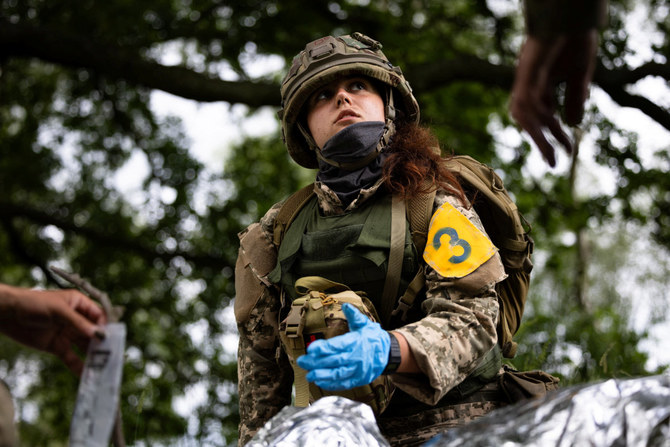LONDON: A panel of UN experts has warned that two elderly British citizens held by the Taliban without charge in Afghanistan are in such poor health they could die in custody, The Sunday Times reported.
Peter Reynolds, 80, and his wife Barbie, 76, were arrested on Feb. 1 after disembarking from a domestic flight in Bamian province, where they had lived since 2009. No reason for their detention has been given.
“We see no reason why this elderly couple should be detained at all, and have requested an immediate review of the grounds of their detention,” said Alice Edwards, UN special rapporteur on torture.
“It is inhumane to keep them locked up in such degrading conditions and more worrying when their health is so fragile,” she added.
The couple, who previously ran training programs and had remained in Afghanistan after the Taliban took power in 2021, have spent months in appalling conditions, first in the notorious Pul-e-Charki prison and later in an underground cell at the intelligence services headquarters.
They now sleep on mats, without beds or furniture, and have limited access to phones.
Peter, who suffered a mini-stroke in 2023, is believed to have had another stroke or silent heart attack in custody. Barbie is suffering dizzy spells and numbness linked to anemia.
A UK Foreign Office official who visited last week saw Peter’s face red and peeling, possibly due to a recurrence of skin cancer.
“Their physical and mental health is deteriorating rapidly,” Edwards said. “Without access to adequate medical care they are at risk of irreparable harm or even death,” she added.
“We have been told we are guests of the government but this is no way to treat a guest,” Barbie told the visiting UK official.
Peter said in a phone message to The Sunday Times that he was being kept in chains alongside serious offenders, calling it “the nearest thing to Hell I can imagine.”
He added: “I’ve been joined up with rapists and murderers by handcuffs and ankle-cuffs, including a man who killed his wife and three children, shouting away.”
Their daughter, Sarah Entwistle, said: “Mum described dad’s rapidly deteriorating health. It’s incredibly worrying.” She added: “They need urgent medical attention. Dad desperately needs to be seen by a hospital. Surely the Taliban don’t want his death on their hands. It’s a ticking time bomb.”
The UN statement said: “Mr. and Mrs. Reynolds were reportedly detained without formal charges, have had no access to effective legal assistance and only have very limited contact with their family by telephone.”
Their children, who had planned a party in the US for Barbie’s 80th birthday, have sent private letters and launched multiple appeals for their release. “Enough is enough,” said Entwistle. “It’s been five months now.”
The Taliban have offered no formal explanation, though theories include suspicion over religious books, Barbie’s teaching work or potential leverage to pressure the UK to reopen its Kabul embassy.
Interrogations of 30 staff and friends reportedly found no wrongdoing, and Peter said he and Barbie were asked to thumbprint a nine-page CID report stating no crime had been identified.
Edwards also expressed concern that a recent data leak involving Afghan nationals who worked with the British military could complicate the couple’s situation. “The Taliban may try to use them as a bargaining chip,” she said.
Despite visits from a UK envoy and some medical aid, efforts to secure the Reynolds’ release are complicated by the lack of a British diplomatic presence in Afghanistan.
Qatar, which maintains relations with the Taliban, is reportedly attempting to mediate.































